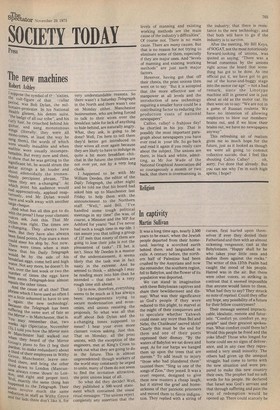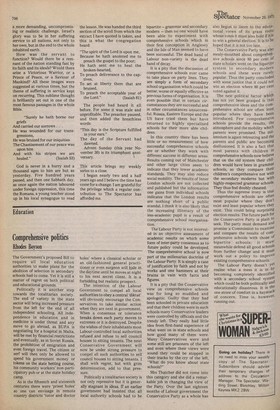Religion
In captivity
Martin Sullivan
It was a long time ago, nearly 2,500 years to be exact, when the Jewish people departed from their homeland, leaving a scorched earth behind them, and languished in exile. A century before, the northern half of Palestine had been crushed by the Assyrians and now the remainder, the southern region, fell to Babylon, and the flower of its population was deported.
We can stand in imagination with these Babylonian captives and share their bewilderment and dismay. What was their significance as God's people if they were reduced to this plight, to marvel at the might of their conquerors and to speculate whether Yahweh could mean any more than Bel and Nebo, the Chaldeans' sacred idols? Clearly this must be the end for them and one of their poets expressed their dismay. "By the waters of Babylon we sat down and wept. As for our harps we hanged them up upon the trees that are therein." To add insult to injury "those who had plundered them" taunted them: "Sing us one of the songs of Zion," they jested. It was a cruel request, designed to give these new masters a cheap laugh, but it stirred the grief and homesickness of ther patriotic prisoners and moved them to fierce indignation. They replied with a string of curses, first hurled upon themselves if ever they denied their Fatherland and then with an almost sickening vengeance, cast at the Babylonians. "Happy shall he be who takes your little ones and dashes them against the rocks." The writer of this 137th Psalm had caught the mood of his people. Hatred was in the air. But there were other voices, so striking in contrast that it seemed impossible that anyone would listen to them. What had they to say? They struck no note of reprisal. Could they offer any hope, any possibility of a future for their fellow countrymen?
Their message seemed impracticable, idealistic, remote and futuristic. "Comfort ye, comfort ye, my people" said their greatest spokesman. What comfort could there be? Would this people be freed and the yoke lifted? Those who longed for home could see no signs of deliverance, and in any case they represented a very small minority. The others had given up the unequal struggle, had come to terms with the new situation and were prepared to make this new country their own. The prophet had no soft words for his people. He declared that Israel was God's servant and that through suffering and pain the way of redemption would be opened up. There could scarcely be a more demanding, uncompromising or realistic challenge. Israel's glory was to be in her suffering service to all nations, not only to her own, but in the end to the whole inhabited earth.
How was the servant to function? Would there be a remnant of the nation standing fast by its faith and its ideals? Would there arise a Victorious Warrior, or a Prince of Peace, or a Saviour of Mankind? All these images were suggested at various times, but the theme of suffering in service kept on recurring. This sublime thought is brilliantly set out in one of the most famous passages in the whole Bible.
"Surely he hath borne our griefs And carried our sorrows. . .
He was wounded for our transgressions, He was bruised for our iniquities The Chastisement of our peace was upon him And with his stripes we are healed," (Isaiah 53) God is never in a hurry and a thousand ages to him are but as yesterday. Five hundred years passed, and then one Sabbath day, as once again the nation laboured under foreign oppression, this time the Romans, a young teacher stood up in his local synagogue to read the lesson. He was handed the third section of the scroll from which the extract I have quoted is taken, and this is what the congregation heard; The spirit of the Lord is upon me, Because he hath anointed me to preach the gospel to the poor; He hath sent me to heal the broken-hearted.
To preach deliverance to the captives, To set at liberty them that are bruised, To preach the acceptable year of the Lord," (Isaiah 61) The people had heard it all before. For some it was stale and unprofitable. The preacher paused, and then added the breathless words: "This day is the Scripture fulfilled in your ears."
The day of the Servant had dawned.
Advent Sunday (this year November 30) is its triumphant rniversary.
This article brings my weekly series to a close.
I began nearly two and a half years ago and I believe the time has come for a change. I am grateful for the privilege which a regular contribution to The Spectator has afforded me.



































 Previous page
Previous page